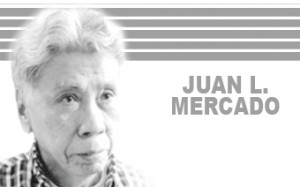Nothing can stay death. Not money, not power, not influence, and certainly not libel suits.
That’s underscored in news on Singapore’s former Prime Minister Lee Kuan Yew’s hospitalization for severe pneumonia, writes Carlton Tan on the Net. He has since died. And tributes as well as criticism have flowed in.
Every major media outlet has picked up the story of last illness, But until his death, they don’t know any more than Singaporeans do.Local media continues to be muzzled.
Two years back, the then 89-year-old elder statesman was hospitalized following a stroke. He was discharged after two days.
This last  time round, he was confined in the Singapore General Hospital where he was treated for severe pneumonia and, at the end, was on life support in the ICU.
Singaporeans watched he news. So, ddi ASEAN nations and the world. Some critics started rejoicing behind their keyboards. Many wish him well.
“I, too, find myself conflicted”, Carlton Tan admits. . Do I love or hate the man who brought us such great prosperity but so little liberty? Do I want Singapore to get out from under his shadow and choose a different path for itself? Or ,would I rather remember his wisdom and continue down the beaten track?
Strange that so towering a figure in life should be so powerless in death. The man who claimed he’d would rise from the grave to protect his legacy may soon find such words to be little more than vapor.
With foresight, Lee signed an Advance Medical Directive. He wrote in his book: “One Man’s View of the Worldâ€.
“(My ) AMD says that if I have to be fed by a tube, and it is unlikely that I would ever be able to recover and walk about, my doctors are to remove the tube and allow me to make a quick exit…
“There is an end to everything and I want mine to come as quickly and painlessly as possible, not with me incapacitated, half in coma in bed and with a tube going into my nostrils and down to my stomach.â€
Even right up to his dying breath, Lee wanted to have his way.
Just before death, The Prime Minister’s Office’ reported that Lee was “conscious and lightly sedated.†The s tersely worded statement offerd no clue of whether he was conscious.
On his 90th birthday, The Economist wrote, “His leadership, however, was less about “big ideas†than a big personality. He is, as many speakers noted, a pragmatist and … many of us are drawn, not to his ideology— but to his cantankerous personality.
Remember, though, that Singapore’s success was never the consequence of one man’s actions,. The older generation may recall the equally important contributions of Goh Keng Swee and Sinnathamby Rajaratnam, both before and after independence (and also those of the Barisan Socialis).
Their domestic and foreign policy, were responsible for much of what we have today. Despite that, Mr Lee’s role towers.
Reading comments of Singaporeans ‘has been like reading the diary of a bipolar patient. We love and hate, respect and despise, cherish and abhor, the man.
We are thankful for our decades of economic progress. But but was it necessary to sacrifice our freedoms? We are grateful for the stability. But can we maintain it without a strong civil society. Hard choices had to be made. Were these those were the only choices we had?
Might it not have been possible to have both liberty and prosperity? Economic growth and income equality?
Perhaps no one else in Singapore’s history is capable of evoking such contradictory sentiments because no one else forced us to make such great trade-offs.
Even Western leaders both love and hate the man. His insights earned him an attentive audience among the heads of states, but his draconian restrictions on civil liberties also made him subject of countless denunciations.
Death is the great equalizer. And so it will be with Lee. When the time comes, as it surely will, we will have lost a monumental figure. But we also missed a great opportunity.
Before 1965, we could not imagine an independent Singapore, separated from Malaysia.
Before 1981, we could not imagine that an opposition party might break the PAP’s monopoly in Parliament.
Before 2011, we could not imagine that an opposition party might win an election, much less by over 9 percent of the vote.
When Lee passes, we will fly our flags at half-mast. World leaders will pen solemn tributes; the press will go into overdrive, yet more books will be written about him. And for over five million Singaporeans, time will seem to have come to a standstill.
We will mourn his passing, and we will celebrate his life. More important, we honor him by asking tough questions, making hard choices, and imagining a different Singapore.
One politician’s pragmatism has become one nation’s obsession. One statesman’s vision became one people’s dream for wealth. These things need not be so.*

